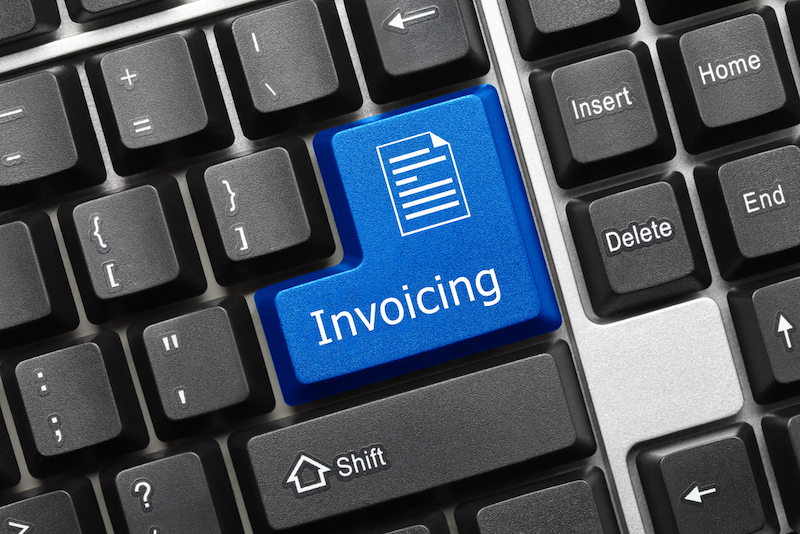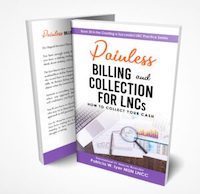LNC Invoicing Tips to Get You Paid Sooner than Later
The invoicing tips in this post provide you with the best ways to collect your fees. Grab your note-taking device of choice.
How Much Should You Bill?
The LNC emailed me to ask for advice. She was reviewing her first case as an expert witness for the defense. On her initial review, she did not think the case was defensible. She said she projected that she would spend 90 hours on the case.
I thought at first it was a typo. After explaining that she should review enough material to conclude, I cautioned her against billing 90 hours and told her no attorney would pay her that much for a merit review.
An attorney expects you to be able to focus on the critical issues in a case. A phone call or meeting with the attorney before you start working on a case can save hours of misdirection.
Don’t spend an unreasonable amount of time on a case. Recognize that you do not have to read every medical record page. Some sections are not germane to the case.
Be reasonable and fair. As a legal nurse consultant beginning your business, you sometimes spend more time on the case than you think you can bill for. There is a learning curve associated with this work, so if you must do some research, you have to look up standards, you have to do something that you think is beyond what would be reasonable to charge, then give yourself-and your client- a little bit of leeway.
Legal nurse consultants complain that attorneys want them to be experienced but want to avoid paying for their learning time.
“Quite unfair,” you say. Yes, it looks that way. But if you are prepared to be flexible in your billing practices and write off hours initially, you will be less frustrated.
Billable Time
Avoid financial landmines that will cost your legal nurse consulting business. A primary consideration is what you can bill for. Billable time is work performed directly on the case – reviewing medical records and preparing reports, for example. Sitting and thinking about the case while eating dinner is not billable.
Always ask the attorney for feedback on your work product and learn from their recommendations and reactions.
Keep Good Billing Records
I recommend that you keep meticulous billing records to avoid billing mistakes. You will earn far more money by keeping very good track of your time when you are billing on an hourly basis than if you wait until partway through or the end of the case to estimate how much time you spent.
My fee agreements spell out my billing practices. Although many legal nurse consultants bill in six-minute or ten-minute increments. I find this confusing. If you bill in 5-minute increments and round up to the next 15-minute increment the math is easier and you will earn more. For example, if I spent 2 hours and 10 minutes reviewing a case, I would round up to 2 hours and 15 minutes.
Fee Agreement Language
Charges:
Use a reliable system to keep track of your hours. You ma note them on a paper you keep with the case files, use a timer, or record on a spreadsheet.
Invoicing Practices
The more detailed you are in your invoice, the more likely you will get paid. This doesn’t mean going into minute detail.
Make sure the following information is included on the invoice:
The case caption:
“Who is the plaintiff?”
“What were your services?”
“How long did it take?”
There are two schools of thought regarding the amount of detail you put in an invoice. In one system, the LNC would detail the dates and hours spent on each aspect of the case.
For example, the invoice would state:
December 2, 2022 3.5 hours organizing medical records
December 3, 2022 1.5 hours reviewing medical records of acute care admission
December 5, 2022 4.5 hours reviewing medical records of acute care admission
December 6, 2022 .5 hours call with attorney
December 8, 2022 4 hours preparing the report
In the second system, the LNC would group activities.
December 2-5, 2022 9.5 hours organizing and reviewing medical records
December 6, 2022 .5 hours call with attorney
December 8, 2022 4 hours preparing report
Some attorneys love the details, but for others, it serves as a red flag stimulating the attorney to question the number of hours involved in reviewing the case materials. They might say, “It shouldn’t have taken you 6 hours to review the acute care admission. You could have done that in 2 hours.”
Be prepared to back up your hours with billing sheets or a timekeeping system that you can refer to if asked to substantiate your hours.
When to Invoice
Give it to them fast, meaning as soon as the services are completed, send out the invoice.
The attorney’s gotten the report, and he’s pleased with it. This is the right time to get paid. If you followed my guidance on getting a retainer, you should be fully paid. Sometimes there are a few hours left to be billed. Send out that invoice right away.
And give it to them frequently. Don’t wait until the end of the month. Don’t wait for the end of the quarter. Don’t wait until the case is resolved to start invoicing. Do it in smaller, frequent intervals. The insurance companies like that, and some attorneys will tell you that if the invoice is under a certain number of hours, they can get authority to sign for it and approve it, but if it’s a larger invoice, it must go through bigger chains of command. You want your invoice to be paid as quickly as possible.
Use Leverage
I’ve described the value of a retainer. At certain points, having your client fully paid up is crucial. Fortunately, these are also the points where you have the most leverage. When the attorney needs something quickly, when a report is due, and when you must testify, use your leverage opportunities to ensure your invoices are paid.
You have leverage as a legal nurse consultant or an expert when the attorney needs you, and they need you a lot more than you need the attorney, such as right before a deposition. That attorney needs that deposition done, and sometimes there’s even a court-imposed deadline. This is golden for us. We get excited about court-imposed deadlines because that means we have leverage.
Make sure that if you are an expert witness or are billing for expert witnesses, you or your expert use the testifying date as an opportunity to use leverage to get paid. All bills must be brought up to date, and your projected fees for that deposition or trial must be paid. I recommend that you advise your client through your fee agreement that they are responsible for paying the deposition invoice, not opposing counsel.
Remember, your client is the attorney who hired you. It’s not the attorney on the other side, so demand payment from your client. Don’t demand compensation from the opposing counsel. Let your client get the money from opposing counsel, that’s their issue, but you get it from your client.
Conclusion
You have leverage when the attorney needs a report by a specific date.
Another time you have leverage is when there’s a trial, and the attorney needs the expert. Make sure that you receive the testifying fee in advance. Otherwise, that trial appearance doesn’t happen. This is a golden opportunity to use your leverage.
Look at your opportunities for leverage and use them. If you let an opportunity slip by, it could be months again before the leverage wheel rolls around and you get that little flag up that gives you that opportunity.
By applying these strategies, you can significantly reduce your need to avoid the need to take drastic action.
However, if you do reach the stage of getting tough about collections, that doesn’t mean you failed. Despite your best efforts, you will encounter clients who refuse to pay or are unable to pay.
For more invoicing strategies, click here to get my book, “Painless Billing and Collection for LNC” today.

Pat Iyer is president of The Pat Iyer Group, which develops resources to assist LNCs in obtaining more clients, making more money, and achieving their business goals and dreams.
Pat’s related websites include the continuing education provided on LNCEU.com, the podcasts broadcast at podcast.legalnursebusiness.com, and writing tips supplied at patiyer.com.
Get all of Pat’s content in one place by downloading the mobile app, Expert Edu at www.legalnursebusiness.com/expertedu. Watch videos, listen to podcasts, read blogs, watch online courses and training, and more.



